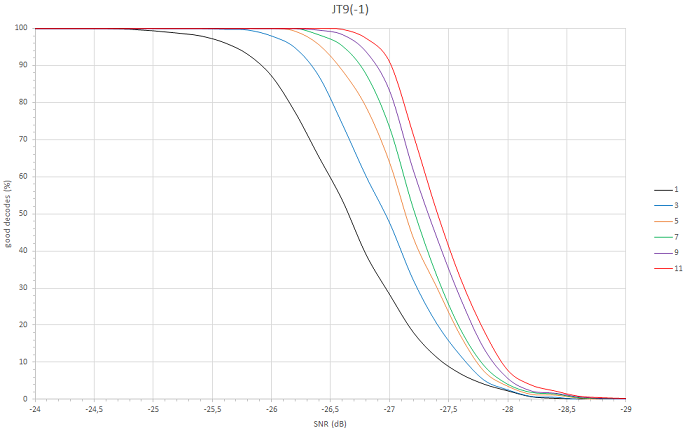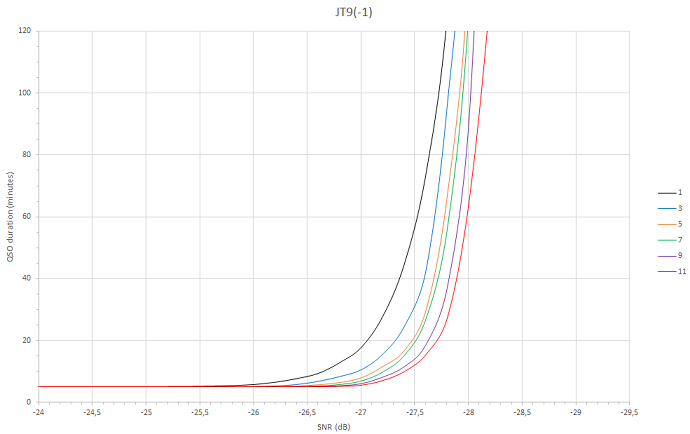
It all started with a mail from David, G0MRF, (17 Januari 2019):
"Last night was very good for propagation and TA activity on 630m. It was one of those rare nights where signals were at a reasonable to good level, but unlike the previous several days, if not weeks, QSB was remarkably slow with only a few dB between peaks and troughs. There was a period between 02.00 and 04.00 with no decodes here, but between 06:25 and 07:49 I decoded 19 transmissions from K9KFR in EN77, most of which were CQs
I was pleased to work Glenn VE9GJ on JT9 shortly after he made his first TA QSO with Jan LA3EQ.
Interestingly Rik's SlowJT9 which was running in parallel, managed to decode a couple of more transmissions than WSJT-X."
As I use the JT9 decoder from the WSJT-X suite the performance of SlowJT9 and WSJT-X should be identical. The only difference between both could be a small timing difference that made SlowJT9 to decode some extra transmissions (pure luck, it could have been the other way around as well).
But maybe the performance of SlowJT9 could be improved by running the recorded audio several times through the decoder with each time a small time shift induced in the audio and then taking a "best off" all decoded signals?
The fastest way to find out wether this was a good or bad idea was to do some computer simulation where a JT9(-1) signal was generated at different SNR levels (-24dB to -29dB in 0.2 dB steps) and fed to the JT9 decoder. Next this signal was shifted in 0.2 second steps (up to +/- 1 second) and decoded again.
The graph below shows the results:

These results convinced me that it was worth a try!
The estimated QSO duration versus SNR graph is even more impressing:

73, Rik ON7YD - OR7T